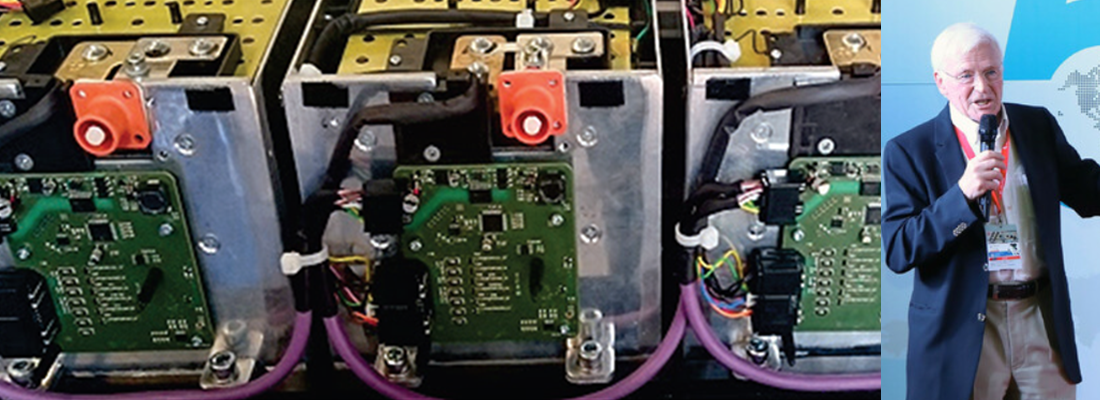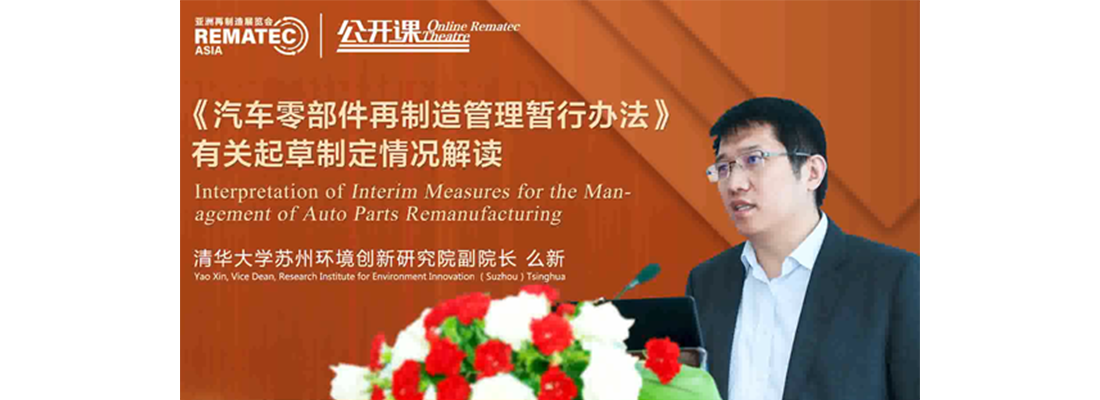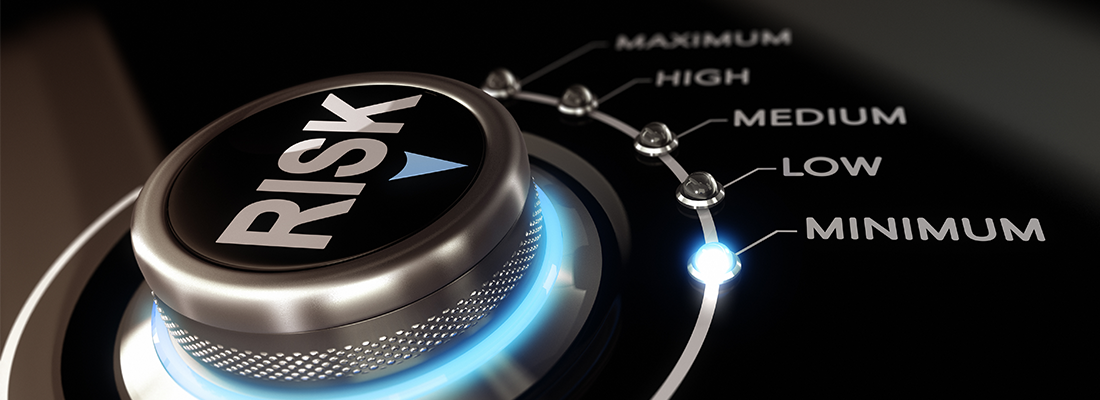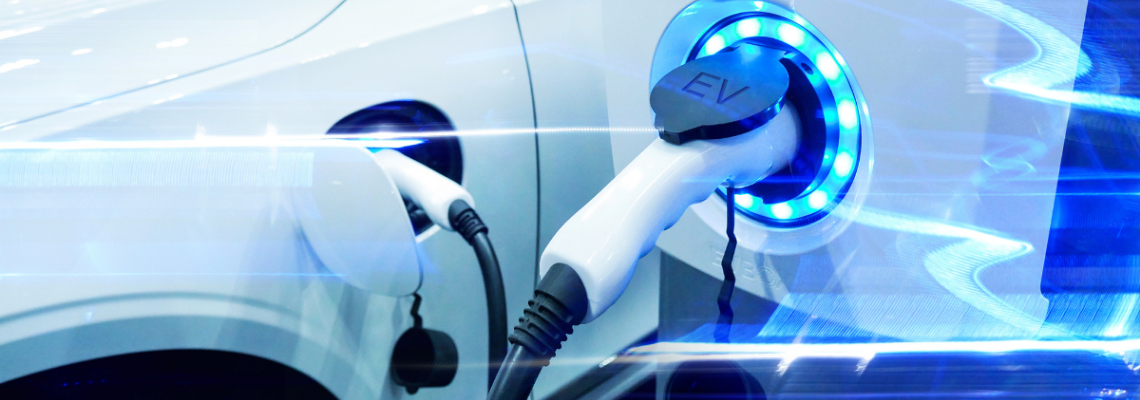Rematec meets Inova Holding Group
Wednesday, 19 February 2025
On the occasion of the Parts Aftermarket Congress 2024, we met with Ivan Giai Via, CEO and founder of Inova Holding Group, the major company specialized in providing reconditioning and body repair services for vehicles.
We are opening a body shop in the province of Como, where our headquarters are located in Carugo, with the goal of making a significant impact by offering innovative solutions. Our approach is not about copying our competitors—there are already many companies in this field. While we can’t reinvent the wheel, we can attempt to shift the paradigm by changing operational methods and business models. Having gained extensive experience abroad, we have encountered different techniques, systems, and solutions to optimize the repair process. This background gives us a unique perspective. Even though we are now operating in Italy—our home market—we see that insurance companies remain unsatisfied. The main issues are high costs and slow service resolution. End customers—the vehicle owners—are also frustrated, often having to wait months for repairs due to long backlogs, especially when bodywork requires additional heated processes. We primarily specialize in cold repair techniques, but we also handle some heated processes. We are establishing a body shop to accommodate a large number of vehicles while also leveraging a strong partner network across the region. We are building a valuable network of body shops and professionals—entrepreneurs with an open-minded approach to the industry. Our goal is to combine our experience with a centralized and optimized repair process while relying on skilled and experienced bodywork specialists within our network.
Additionally, this approach significantly reduces environmental impact—not only by avoiding unnecessary materials but also by lowering energy consumption, as there is less need for spray booths and other energy-intensive equipment. In general, we are focused on process efficiency, which naturally leads to a reduction in pollutant emissions—making us more sustainable. It’s also essential to be pragmatic: everyone benefits from this approach, including the customers. We strive to minimize unnecessary trips for our clients, reducing fuel consumption by optimizing appointments in a single location. If needed, we personally take them home or provide a courtesy car. Abroad, we even offer bicycles and electric scooters for customers to get back home. Overall, these are all solutions aimed at streamlining the process while enhancing sustainability.
Ivan, first of all, tell us about your company and your area of specialization.
I am the CEO and founder of Inova Holding Group. Our headquarters are in Switzerland, and we have branches in other countries, such as Germany, as well as an operational branch in Switzerland. Since 2004, we have also established a branch in Italy to permanently develop our services in the field of bodywork and hail damage claims management on behalf of insurance companies. It is a job we have been doing for over 25 years on an international scale, working alongside car manufacturers, insurance companies, logistics centres, and ports. We have extensive international experience in managing large volumes of hail-damaged vehicles and also operate on behalf of insurance companies in customer management and private client claims, through special agreements to further improve efficiency and convenience. After numerous requests, especially from our clients, we decided to open a branch in Italy because it represents a very familiar market for us.The importance of climate
Weather conditions, particularly hail, are—whether unfortunately or fortunately—a crucial factor for us. In Italy, for example, hailstorms have become increasingly frequent in recent years. Fundamentally, Italy is a large country with a significant number of circulating vehicles. Italian customers have a strong passion for cars and pay great attention to their vehicles, which is an advantage for us. Both my business partner and I are Italian. I have been living in Switzerland for over twelve years, while my partner still resides in Italy. As Italians, we felt it would be a missed opportunity not to operate in Italy on a permanent basis. In the past, we worked in the country during hailstorms, handling vehicle fleets on behalf of logistics centres or manufacturers, but these were one-off operations. Now, however, our presence has become more structured and stable.We are opening a body shop in the province of Como, where our headquarters are located in Carugo, with the goal of making a significant impact by offering innovative solutions. Our approach is not about copying our competitors—there are already many companies in this field. While we can’t reinvent the wheel, we can attempt to shift the paradigm by changing operational methods and business models. Having gained extensive experience abroad, we have encountered different techniques, systems, and solutions to optimize the repair process. This background gives us a unique perspective. Even though we are now operating in Italy—our home market—we see that insurance companies remain unsatisfied. The main issues are high costs and slow service resolution. End customers—the vehicle owners—are also frustrated, often having to wait months for repairs due to long backlogs, especially when bodywork requires additional heated processes. We primarily specialize in cold repair techniques, but we also handle some heated processes. We are establishing a body shop to accommodate a large number of vehicles while also leveraging a strong partner network across the region. We are building a valuable network of body shops and professionals—entrepreneurs with an open-minded approach to the industry. Our goal is to combine our experience with a centralized and optimized repair process while relying on skilled and experienced bodywork specialists within our network.
In the Automotive sector, what added value does your company offer?
When it comes to added value, we are relatively new in Italy, but we bring extensive international experience, which has given us a strong foundation, including operational models that can be adapted to the local market. It’s not about being better or worse than others, nor about claiming to revolutionize the industry—we don’t see ourselves that way, nor do we aim to be. However, we do believe that, at this moment, if you take a snapshot of hail damage claims management in Italy, there is significant fragmentation and many operational inefficiencies. We don’t think it’s possible to simply transplant an operational model from Germany, Switzerland, or the Netherlands into Italy. Instead, we aim to take key concepts from these models and adapt them to fit the Italian market. In Italy, repairs tend to be fragmented and distributed across the entire network without distinction. Our goal is to demonstrate to insurance companies that by centralizing a large portion of cold repairs, processing times can be significantly reduced—for both insurers and customers—while also achieving considerable cost savings. Moreover, we are in a world where the automotive spare parts sector is facing major challenges—issues with availability, delivery delays, and more. This makes repair instead of replacement an even greener and more crucial approach. That’s exactly the direction we are striving to move towards.How does your company approach the "zero emissions and sustainability" challenge?
This is both a current reality and a necessity for the future, and we feel ready to embrace it. Sustainability is a crucial topic. In Italy, we see a strong tendency to repaint or replace parts even when it’s not strictly necessary. Our philosophy is to prioritize repair over replacement. This means focusing more on cold repair techniques, which offer great execution potential. With the right expertise, it’s possible to achieve extremely high-quality results, restoring vehicles to an impeccable state without the need for paint products or other materials.Additionally, this approach significantly reduces environmental impact—not only by avoiding unnecessary materials but also by lowering energy consumption, as there is less need for spray booths and other energy-intensive equipment. In general, we are focused on process efficiency, which naturally leads to a reduction in pollutant emissions—making us more sustainable. It’s also essential to be pragmatic: everyone benefits from this approach, including the customers. We strive to minimize unnecessary trips for our clients, reducing fuel consumption by optimizing appointments in a single location. If needed, we personally take them home or provide a courtesy car. Abroad, we even offer bicycles and electric scooters for customers to get back home. Overall, these are all solutions aimed at streamlining the process while enhancing sustainability.
Last but not least, let’s conclude by talking about BEVs. You mentioned both cold and heated repair processes. Are you addressing the special considerations required for repairing electric vehicles, especially when working with heat?
As early as 7–8 years ago, all our technicians underwent training on how to approach and handle electric vehicles. In our industry, working on EVs often involves disassembling interior components, possibly removing wiring, and, fundamentally, handling high-voltage vehicles. In this case, it’s not the company itself that gets certified, but rather the company ensures that each technician undergoes specific training to become certified and qualified to participate in projects, including those for manufacturers working on new vehicles. We provide our technicians with the necessary training tools, and once certified, they retain their qualifications even if they move on to work elsewhere. The certification belongs to them—it is their personal asset.
Receive the best newsletter on remanufacturing - straight to your inbox!





